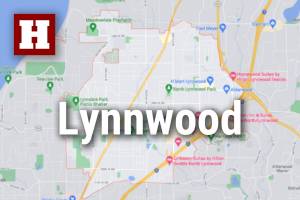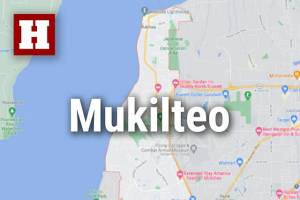Mukilteo utility district panel’s health benefit criticized
Published 10:06 pm Sunday, February 28, 2010
MUKILTEO — Like many elected officials, commissioners serving on the Mukilteo Water and Wastewater District board are compensated for their time.
One former commissioner, however, says his ex-colleagues have it a little bit too good.
Richard Andrews, who was a board member before losing a re-election bid in 2009, said commissioners have a right to receive medical health insurance coverage.
It’s the amount they get that irks him.
He says the $1,200 a month in tax-free health benefits given to each of five commissioners is excessive. That’s in addition to the $210 stipend for two meetings a month each commissioner receives.
“I think if the citizens knew we were getting that kind of money, they would be upset,” he said.
The board’s president disagrees.
He said commissioners work hard and deserve to be compensated for their time.
“Some people might look at it as a total amount and think it’s a lot of money,” said Thomas Rainville, board president. “When you look at the overall budget of the district, it’s a very small amount.”
Customers of the district, which serves Mukilteo and a small section of Everett, pay $7.68 a year toward the health benefit, Rainville said.
Andrews, whose works as a construction manager for the city of Seattle, joined the district in late 2007.
That’s when the smaller, three-member Olympus Terrace Water District, whose board Andrews served on for 10 years, merged with the three-member Mukilteo Water District to form the Mukilteo Water and Wastewater District. Commissioners serve six-year terms.
Only water districts with at least 5,000 connections can provide the benefit. Mukilteo Water District has been getting the benefits since 1991. Olympus never had the benefit because it was too small of a district. The merged district now has 17,000 hook-ups.
Last November, Andrews lost an election to Thomas McGrath, who also served on the merged board. The board was made up of six members but contracted to five.
The medical health benefit in question is known as a Health Reimbursement Arrangement Voluntary Employees’ Beneficiary Association, said Mark Wilkerson, group manager for the Veba Service Group, a Spokane-based employee benefits organization that contracts with public employers to manage the plan.
Commissioners are reimbursed for medical and dental expenses.
The benefit provides reimbursement for supplemental health benefits to more than 31,000 government employees in the Northwest, according to the organization’s Web site at hraveba.org. Benefits can be used for a variety of medical and dental expenses.
Under federal tax law, only public employers may fund the plan, Wilkerson said.
“They’re very popular,” he said. “They provide a lot of value to employees.”
In March and December 2009 memos to fellow commissioners, Andrews questioned the benefit.
“As a board, we attend approximately 24 regular board meetings a year averaging about 2 hours per meeting,” a 2009 memo said. The money that they were receiving as commissioners seemed excessive, he said in the memo.
Last December, Andrews made a motion to end the benefit, arguing the timing was especially bad because of the economy and the possibility of a 20 percent rate increase this year, according to meeting minutes. The rate increase has not been implemented, but a public hearing regarding the increase is scheduled for 7 p.m. Wednesday.
McGrath suggested cutting the benefit in half. A majority of commissioners rejected the idea, however.
Rainville said commissioners put more time into their elected positions than the two hours per meeting. They can spend three to four hours reading in preparation for each meeting, he said.
“I do not believe the commissioners are overpaid for the time that they put in, nor do I believe anyone who serves as a commissioner does it for the money,” he said. “In my opinion, I believe … the ratepayer is well served by the commissioners for what they receive.”
He pointed out that other water districts offer the same benefit.
The Alderwood Water District, Snohomish County’s largest, makes a health care benefit available to its commissioners.
Unlike the Mukilteo district, its commissioners are required to opt out of any other medical or dental insurance plan they have in order to receive it, said Mike Pivic, administrative services director.
Oscar Halpert: 425-339-3429, ohalpert@heraldnet.com
Hearing Wednesday
The Mukilteo Water and Wastewater District, 7824 Mukilteo Speedway, will hold a public hearing at 7 p.m. Wednesday to consider a 20 percent rate increase for single-family homes. The district is considering the increase to help pay off $26.1 million in debts from work on wastewater sewer lines.
For more information, call the district at 425-355-3355.




